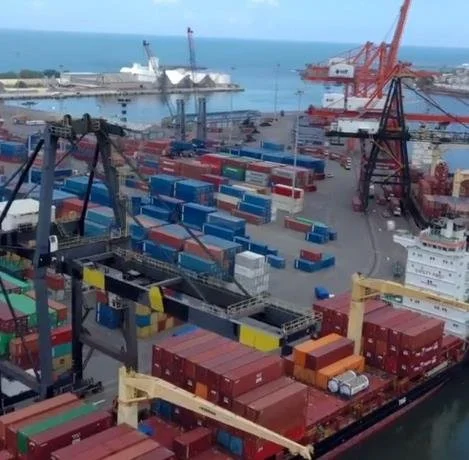Santo Domingo, DR.
The worst global food crisis in a decade was one of the main issues discussed at the twelfth ministerial meeting of the World Trade Organization (WTO) last month, according to an article published on the World Bank blog authored by Mari Elka Pangestu and Axel Van Trotsenburg.
The authors point out that this crisis is exacerbated by the growing number of countries that ban or restrict exports of wheat and other commodities in a misguided attempt to curb rising domestic prices.
They note that the price of wheat, an essential commodity in many developing countries, has risen 34% since Russia invaded Ukraine in late February, and prices of other foodstuffs have also increased.
They note that in response, as of early June, 34 countries had imposed restrictions on food and fertilizer exports, close to the 36 countries that used such controls during the 2008-2012 food crisis.
They indicate that these measures are counterproductive because they reduce global supplies, driving higher food prices. Other countries respond by imposing their restrictions, causing a growing cycle of trade actions that have a multiplier effect on prices.
They explain that measures to limit exports significantly affected food prices in the 2008 crisis, worsening the situation.
The publication notes that this time, the war in Ukraine is accelerating a price spike that began earlier due to unfavorable weather conditions in major producing countries, rapid economic recovery after the COVID-19-induced slump, and rising energy and fertilizer costs.
“The war has severely disrupted shipments from Ukraine, one of the world’s largest food suppliers. The country is also a major supplier of corn, barley and sunflower seeds, which are used to make cooking oil, products that cannot reach world markets because Ukraine’s ports are blocked,” the authors analyze, noting that export restrictions are not the only trade measures governments are taking in response to rising prices.
They argue that some countries are reducing tariffs or eliminating import restrictions. Chile, for example, increased duty discounts on wheat. “Normally, a permanent reduction in import restrictions would be welcomed. However, in a crisis, temporary reductions in import restrictions put upward pressure on food prices by boosting demand, just as export restrictions do by reducing supply,” they say.
Affected
The article states that among those most affected by trade restrictions (PDF) are developing economies in Africa, Asia, Latin America, and the Middle East. For example, Bangladesh imports 41% of its wheat from the Black Sea region. In the case of the Republic of Congo, the figure is 67% and 86% in the case of Lebanon.
He refers that given the magnitude of dependence, people in these countries are likely to be affected immediately, as alternative suppliers will not be available in the short term. “Higher prices will eventually incentivize major agricultural exporters to expand their production and replace part of the exports from the Black Sea region, but this will take time,” they point out.

